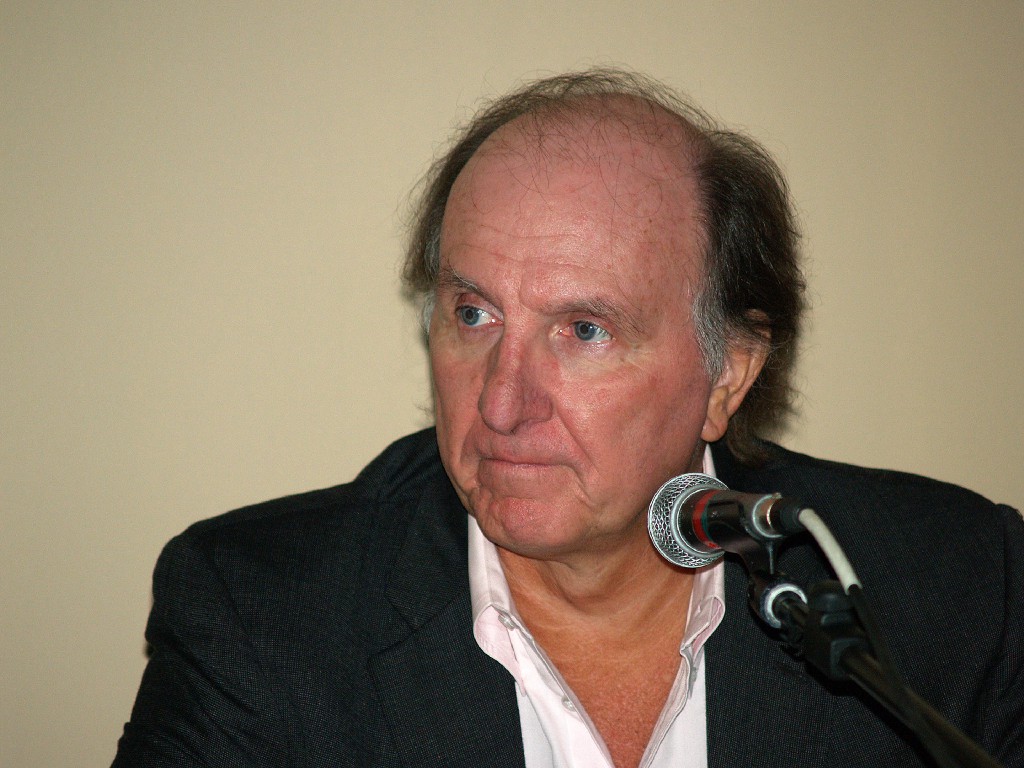Wayne Barrett, 1945-2017
And now he’s dead.

Yesterday long-time New York City reporter Wayne Barrett died in Manhattan at the age of 71. Barrett’s 27-year stint writing for The Village Voice, eventually taking over the Runnin’ Scared column, which was a beat devoted exclusively to muck-raking in its most elemental form, was one of the greatest runs in investigative journalism, if for only the number of powerful figures he hounded — Sen. Alfonse D’Amato, Rev. Al Sharpton, State Senator Sheldon Silver, Mayor Ed Koch and Mayor Rudolph Giuliani.
Barrett was solidly in the tradition of shoe-leather journalism, holding public figures to account, and was the product of a culture at The Voice that produced a long line of journalists — Barrett, Nat Hentoff (who also passed a week ago), Jack Newfield, Ken Auletta, Tom Robbins, William Bastone — whose scrutiny was regarded warily by the establishment, in a way difficult to find a contemporary parallel. As Barrett said about himself and his colleagues, “We are detectives for the people.”
His first book, City For Sale: Ed Koch and the Betrayal of New York, (co-written with fellow NYC legend Jack Newfield) was described at the time by the New York Times as “an engrossing (if sometimes dense) narrative and a convenient way for busy people to catch up on the complexities of recent New York City corruption. But it is also the culmination of a well-known grudge match between two Village Voice reporters (Mr. Newfield has since left for The Daily News) and the Mayor of New York.” Barrett was the sort of reporter whose coverage could easily be construed as a grudge match, from a distance. Another grudge match Barrett left us was with Giuliani, resulting in two books, a general biography and a look at the beginnings of Giuliani’s life-long love affair with 9/11. But the column, and Barrett’s work, was not just about hounding the powerful; Barrett was a columnist, with a weekly obligation. One week might be a facet of his ongoing reporting on Rudy, and another details of a flailing campaign of a Kennedy, and another tracking down unfolding details of the Deutsche Bank fire. His interests were parochial; it’s just that some of the most powerful people in country worked in his parish.
As a former intern of Barrett’s, writer Adam Weinstein, wrote in Mother Jones in 2011, “To politicians, pundits, and civil servants, Wayne is a journalistic Marine Corps: no greater friend, no worse enemy.”
Weinstein is only one of a storied network of journalists who got their starts interning for him. Jen Snow, Director of PR and Brand at Russ & Daughters, who was at the time executive assistant to the Editor in Chief and tasked with staffing Barrett’s interns, said, “Among Wayne Barrett’s talents was his gift for identifying and then teaching and nurturing (definitely not the word he would have chosen, but true nonetheless) so many young people who would go on to become brilliant investigative reporters, writers, and editors.”
Sam Dolnick, senior editor at the New York Times, was one of the interns. “He had a crew of interns, like six or eight at a time. My internship was my journalism school,” said Dolnick. “He’d have eight storylines running in his head at once, and he’d have us chasing shadows we barely understood. At end of day, we’d each file memos, just type up everything in our notebook from the day.” And when the stories ran, the interns would wait for copies, scanning to see which mysterious detail would make print.”
Emily Weinstein, Deputy Food Editor of the New York Times, was another. “He’d given over his tiny, windowless office at the Voice to his intern operation, lining the walls with metal desks and filing cabinets. We’d crowd around the speaker phone every morning to get our directions for the day from Wayne, who oversaw everything from his home in Windsor Terrace,” she remembered. “He’d call out your name and tell you to call the teacher’s union, to go to the courthouse in the Bronx and dig out files. It was awesome.” “He was amazing, a mensch and a fighter and a generous mentor, an old-school pain in the ass for the bosses of this world and a truly incredible force for democracy — a great New Yorker and a great man.”
Barrett famously was laid off from The Voice in 2010, an act that also cost the paper the services of his long-time colleague Tom Robbins, who resigned in protest. This resulted in a laudatory round of appreciations and tributes (and one goodbye note).
In his final years, Barrett was most popularly known as an expert on Donald J. Trump, the subject of Barrett’s reporting for decades. As the candidacy of Trump shed improbability, Barrett’s 1992 expose of Trump, Trump: The Deals and the Downfall was republished in 2016 with new material as Trump: The Greatest Show on Earth: The Deals, the Downfall, the Reinvention, and Barrett was a frequent guest for television and radio shows to discuss what he learned of Trump over the years.
Barrett was reporting to the end. As Robbins tweeted yesterday upon learning of his death:
On the drive to the hospital where he breathed his last, Wayne Barrett was still doing interviews for a big, tough story on Donald Trump.
He was 71.
